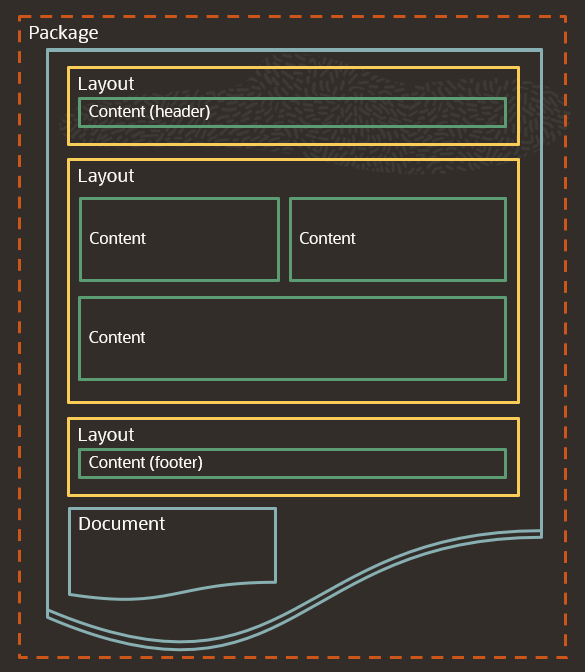Configuring Communication Cloud Service
Configuration defines the structural components that are assembled into a final output. Configuration is done in the platform independent user interface using a browser or through REST API calls from an external client. This topic focuses on configuration through the user interface. Refer to the service’s swagger document for information on using the REST API.
Configuration access is controlled by authentication and fine-grained authorization control as outlined in the Security Management and Entitlements Management sections.
Overview
Communication Cloud Service Configuration
Table 1-1 Structures
| Structure | Description |
|---|---|
| Package | Package is the top most structure in the hierarchy and contains the potential deliverable in the form of Documents. Packages also contain the business logic to determine what should be produced and the data mappings to externally sourced data that is used in business logic and to populate content. |
| Document | Document is a deliverable item that contains one or more Layouts that define the structure of the Document. |
| Layout | Layout is a structural component that contains one or more Content configurations to support positioning of the output within the Document. |
| Content | Content is the visible content that appears in the output. Content can contain strings of text and numbers as well as graphics and variable data. |
| Styles | Styles are collections of attributes that define the appearance of the output. Style attributes include font family, font style, font size, color, and background color as well as others. Styles can be created for global use an associated to a Document, Layout or Content. |
| Fonts | Fonts are references to font files which define appearance of characters that are displayed. |

Versioning
Packages, Documents and Content can all be configured with one to many versions. Versions support an Active and Inactive date to control when a version will be used in assembly.
Association
The relationships depicted and discussed in the section above are created though Association.